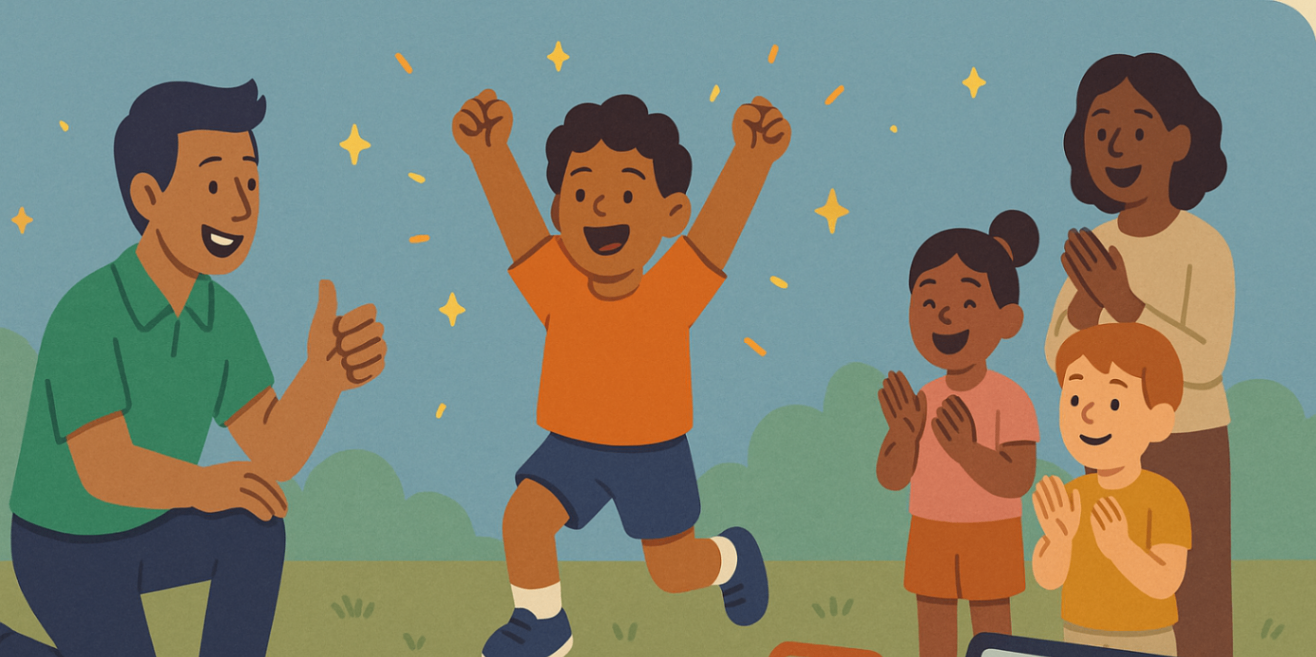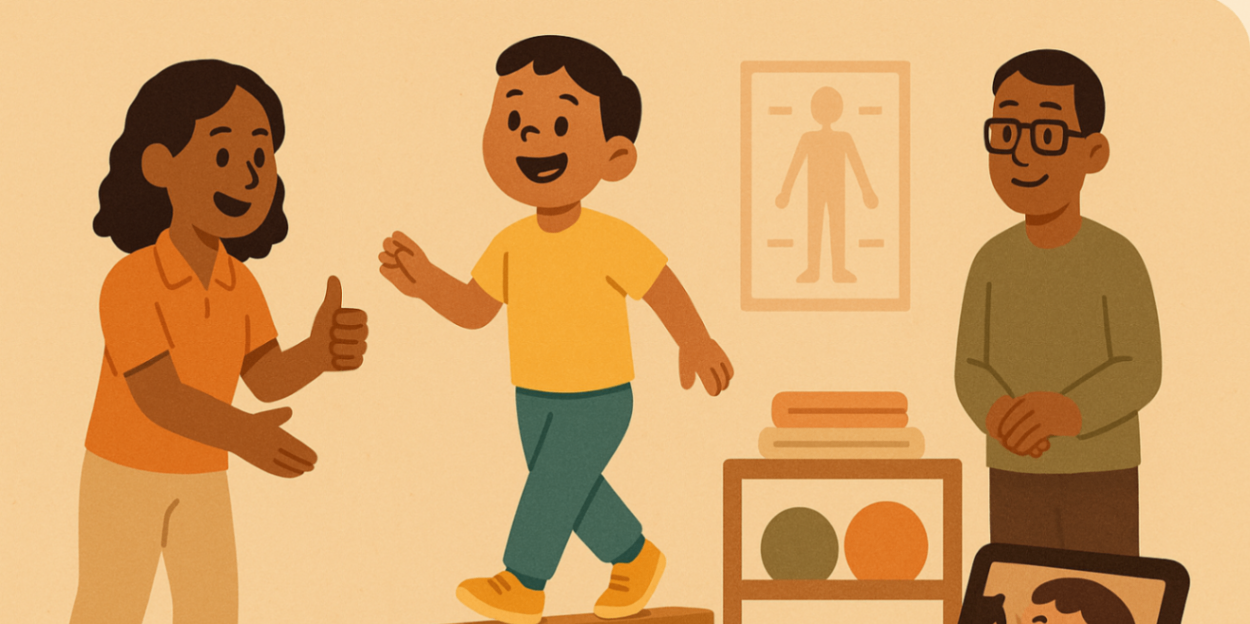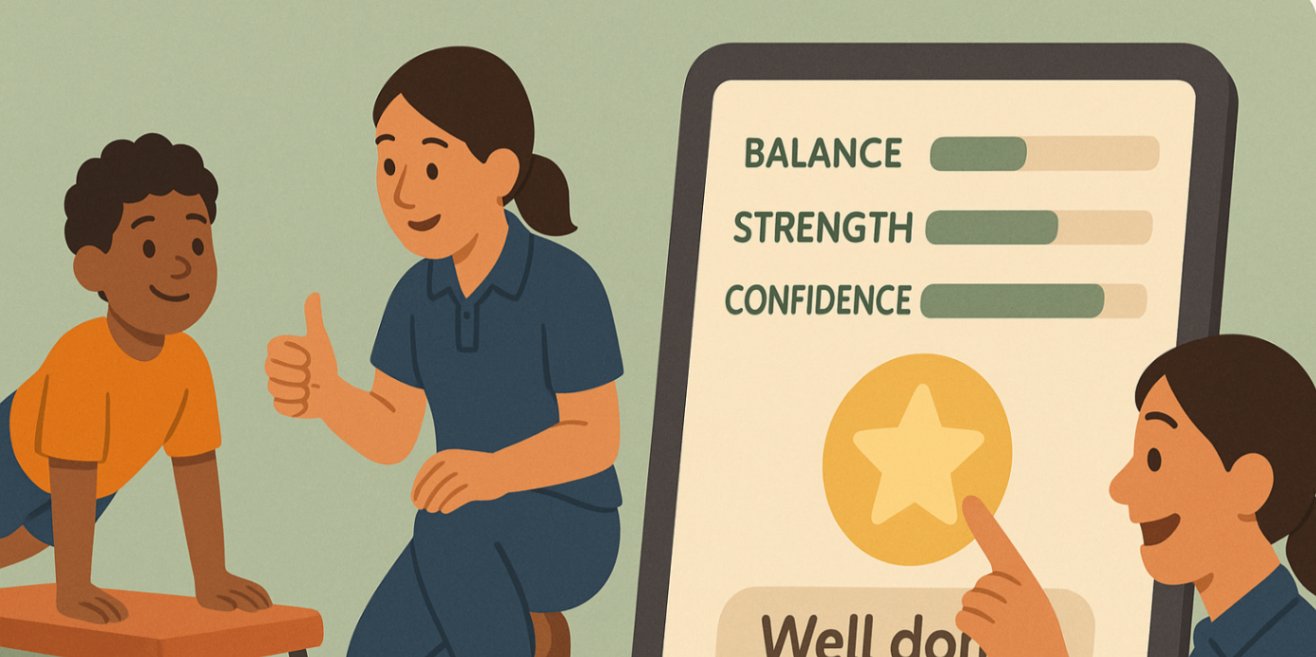
how exercise physiology for kids boosts confidence
22 August, 2025
Key Highlights
-
Boosts Self-Esteem: Exercise physioogy helps improve a child’s physical abilities, leading to greater self-confidence and a stronger sense of accomplishment.
-
Enhances Motor Skills: Targeted physical activity develops coordination, balance, and strength, improving overall exercise performance.
-
Fosters Independence: Mastering new skills and setting personal goals encourages self-motivation and independence in children.
-
Improves Social Skills: Group activities and sports build teamwork and communication, key components of social development.
-
Supports All Children: It provides significant health benefits for all kids, including those with chronic conditions or disabilities.
-
Connects to Academics: Improved focus and discipline from physical activity can even be linked to better academic achievement.
Introduction
Regular physical activity is very important for the healthy development of children. It is not just about burning off energy. It helps make bones strong, keeps hearts healthy, and boosts the immune system while helping the mind stay tough. The health benefits are many. Regular physical activity can help with physical fitness and mental well-being. Still, you may wonder how to make sure your child gets the right kind of movement to help them grow. This is where exercise physiology helps. Experts in this field give a structured plan. They help your child build confidence and independence with movement.
For five practical ways exercise physiology supports kids’ development, read 5 ways exercise physiology enhances kids’ emotional well-being.
Understanding Exercise Physiology for Children

When you look at exercise physiology for kids, it is not just about training children to become top athletes. It is about learning how the body of a child reacts to exercise. A pediatric exercise physiologist is a trained expert in this field. These professionals know the importance of physical activity for kids and plan special programs to help each child become more physically fit.
These exercise physiologists use proven ways to help all children, no matter their ability, to be active. They work to make moving and exercise both fun and possible for every child. This helps kids pick up good habits that last their whole life. The importance of physical activity is clear here, as these experts support every child’s journey. Now, let us look at what exercise physiology means for children and what these professionals do for kids.
Defining Exercise Physiology in a Pediatric Context
In a pediatric setting, exercise physiology is about using exercise science to help children stay healthy and feel well, aiming to prevent or manage chronic diseases such as heart disease. The focus is to look at a child’s physical abilities and then create exercise plans that fit their needs. It’s not just to make kids into top athletes. Instead, it aims to help them grow in both body and mind with movement.
The goal is for healthy children to enjoy physical activity, and for them to keep being active as they get older. This field pays attention to how physical activity affects different populations of children, like those with developmental delays or those who need to manage long-term health conditions. It helps give good physical activity guidelines so exercise is safe and useful.
In the end, exercise physiology uses science to guide how exercise can improve fitness, prevent long-term diseases, and help kids start good habits early. By focusing on care and what each child needs, it supports each child’s growth in a natural way.
The Role of Accredited Exercise Physiologists for Kids
Accredited exercise physiologists with a focus on paediatrics are health experts in exercise physiology. They create and guide safe, helpful exercise programs for children, which may include strength training activities. They be there to work with kids like toddlers, older children, or teenagers. The goal is to help each child reach their full physical potential in a good way. These professionals start by looking closely at a child's motor skills, muscle strength, and overall fitness.
With this in mind, they use the information to make a personal exercise program for each child. The program will fit the child's special needs and personal goals. It can have fun activities that help increase muscle strength, coordination, or help the child’s cardiovascular health. For example, the exercise program may work on getting better power output in the legs to make jumping easier, or help a child last longer at the playground.
They really know a lot about paediatric exercise physiology. And they also know how to get kids to like, enjoy, and do physical activity. In countries such as Australia, you can find these special exercise physiologists. They help families put more physical activity into their kids' lives, give kids new confidence, and help them live a healthier life.
Building Confidence Through Movement Mastery

Confidence in children often comes from feeling like they can do things for themselves. If kids think, "I can do it," they start to believe in their own abilities. Exercise physiology helps children feel this way through movement. When a child plays, like kicking a ball or climbing, they learn to control their body. This helps the child feel good about what they can do. The more they practice different motor skills, the more their self-esteem grows.
Doing physical activity also helps with emotional regulation. Kids must focus when they move and play, which can help calm them down. Their bodies release endorphins too, so children feel better and less stressed. When they see that they are getting better at something, they learn to feel proud of their progress. If things are hard, they learn how to handle frustration. All of these skills are important and help them as they grow up.
This article explains goals like strength, endurance, participation and independence — see Exploring 5 Main Goals of Exercise Physiology.
Improving Motor Skills and Coordination
A main aim of pediatric exercise physiology is to help kids get better at basic motor skills and coordination. These skills are like roots. They play a key role in enabling children to do harder movements with ease. It lets them join in play, sports, or daily routines with more confidence. The point of better physical performance is not just to help athletes. It is to make sure every child can move better and feel good in their body.
When kids build up their muscle strength and coordination, they can do things they could not do before. They feel this progress in the way they move, and that feeling is very encouraging. These kinds of improvements happen through planned activities focused on areas such as:
-
Jumping and Landing: Makes legs stronger and supports smooth movement throughout the body, including effective arm movements to maintain balance.
-
Hand-Eye Coordination: Needed for using a ball, writing, and many everyday movements.
-
Jumping and Landing: Makes legs stronger and supports smooth movement throughout the body.
-
Running and Agility: Boosts heart rate, improves heart health, and helps kids move quickly and nicely in different directions.
Doing these specific exercises can raise the heart rate safely and help a child get into good physical activity habits. It builds a base for healthy living and brings real benefits to a child's growth.
Celebrating Milestones and Achievements
One of the best ways that exercise builds confidence is by letting people celebrate their milestones and achievements. In exercise physiology, goals are split into small steps that are easier to handle. This way, a child can have small wins often, and that feels good. These wins are great for motivation.
Not all achievements have to be huge. It can be things like holding a plank for a few more seconds, finishing a bike ride without stopping, or catching a ball for the first time. Each little win is a milestone. It shows that hard work begets real results. When kids keep setting new goals and reach them, they build trust in what they can do.
This feeling of reaching goals helps with emotional regulation. It shows children why they should keep trying. It also helps form a good mindset. When kids are active often, this can also improve their cardiovascular health and cardiac output in the long run, bringing together feeling good with being physically strong.
Fostering Independence and Social Skills
 Exercise is about more than just what one can do on their own. It is a great way for kids to build independence and social skills. Many sports and other physical activities need people to work with others. This happens in both therapy sessions and community sports. In these places, children talk and interact with each other. This gives them the chance to practice teamwork and communication. They also get to learn problem-solving.
Exercise is about more than just what one can do on their own. It is a great way for kids to build independence and social skills. Many sports and other physical activities need people to work with others. This happens in both therapy sessions and community sports. In these places, children talk and interact with each other. This gives them the chance to practice teamwork and communication. They also get to learn problem-solving.
When kids are around other people, they learn how to fit in. They get better at sharing ideas and listening to their friends or team members. They learn how to work toward a goal together. Getting good at these social skills helps kids grow to be more confident. It is just as important as getting stronger or fitter. Children can grow into well-rounded people as they learn to do both.
Want an assessment that turns growth goals into a practical home and school program? Read How Exercise Physiology for Kids Supports Growth.
Developing Teamwork and Communication
Group-based exercise gives kids many ways to build teamwork and talk with others. It is not like one-on-one therapy, where it can be harder to connect with others. In group settings, kids start to work, share, and play with others around them. Fun games like using the dance mat or playing table tennis as part of a test battery help the children work together and stay aware of those near them.
There, children pick up important rules about working with people in a natural way. The group shows them how to wait their turn, help and lift others up, and deal with problems well. It shows them more than just talking about social skills. They learn by doing.
An exercise physiologist will set up games and fun activities that help children to:
-
Work together and solve physical tasks as a group.
-
Talk with no words and move in sync with each other.
-
Cheer for their friends and make sure the setting feels helpful and safe. This kind of group focus on working with others goes along well with services like occupational therapy. It lets kids try out what they learn in a lively, active space.
Encouraging Self-Motivation and Goal Setting
A big part of staying healthy for life is being able to motivate yourself. Exercise physiology is really good at helping people build this skill. When kids notice that the work they do, like jumping farther in a broad jump or moving their arms better, leads to real progress in their athletic performance, they get motivated from inside. This kind of motivation is much stronger than getting prizes or rewards from others.
Exercise physiologists work with children to make personal goals they can achieve. In doing this, kids learn how to make plans, carry them out, and check how well they did. They pick up skills that help not only in sports, but in all parts of life. When they practice setting physical goals, they learn discipline and the ability to focus. This can also help them do better with their schoolwork and lead to higher academic achievement.
By letting kids take charge of their own exercise program, they learn to be independent. They get a sense of control over how and when they improve. This teaches them to be proactive and builds a kind of confidence that really lasts.
Exercise Physiology for Kids With Special Health Conditions

Exercise physiology is a field that helps many people, including kids with long-term health problems or disabilities. For these children, physical activity does more than keep them busy. It is important for their health and their quality of life. An exercise physiologist knows how to make safe plans for these kids. They use what helps most but always think about the child’s limits.
These professionals change exercise ideas to fit each child. By doing this, they help the child improve how well the body works and what the child can do by themselves. The main goal is to look at what each child can do. This way, they grow more confident, take part in more things, and have better quality of life.
Supporting Children With Chronic Illnesses or Disabilities
For children managing a chronic disease such as cardiovascular disease or disability, tailored exercise is a powerful therapeutic tool. An exercise physiologist can design programs that address specific symptoms and improve overall health. For instance, for a child with cystic fibrosis, certain exercises can improve pulmonary function, while for a child with cerebral palsy, activities might focus on improving mobility and balance.
The goal is to increase the child's functional capacity, allowing them to perform daily tasks with greater ease and endurance. Even for children with serious conditions, the aim is to help them reach their personal peak performance in a safe, supportive environment.
Here is how exercise physiology can help with various conditions:
|
Condition |
How Exercise Physiology Helps |
|---|---|
|
Autism Spectrum Disorder (ASD) |
Improves motor skills, provides sensory input, and aids in emotional regulation. |
|
Cerebral Palsy (CP) |
Enhances mobility, balance, and muscle control to improve functional independence. |
|
Cystic Fibrosis (CF) |
Strengthens respiratory muscles, improves pulmonary function, and boosts exercise capacity. |
|
Down Syndrome |
Builds muscle tone, improves cardiovascular fitness, and supports weight management. |
|
Asthma |
Increases lung capacity and reduces the severity of symptoms during physical exertion. |
This post summarises short- and long-term gains (strength, confidence, school participation) — read Benefits of Exercise Physiology for Kids in Liverpool.
Conclusion
Exercise physiology helps young children feel more sure of themselves and lets them do things without help from others. It can make their movement skills better and celebrates when they reach goals. Working in teams helps them learn to trust what they can do and how to get along with other people. Exercise physiologists also help children who have health problems. This support makes sure every child can be their best, both in their bodies and in how they feel.
Parents and caregivers can help kids grow by choosing things the child can do that involve movement. Set goals the first time that are possible for them to meet.
Book your child’s first exercise physiology session today and take the first step toward building confidence, strength, and lifelong skills.
Frequently Asked Questions
How can parents encourage confidence-building through exercise?
Parents can help kids build confidence by making physical activity fun. The goal is to let children join in and take part, not just aim for a win. It is good to cheer for every try and each little success. Parents can set a great example by being active, too. You can also help your child set easy goals. This is a good way to help them feel proud and want to do more.
Are there exercise physiologists in Australia specializing in kids?
Yes, Australia does have accredited exercise physiologists. Some of these specialists focus on paediatric exercise physiology. They get special training to plan safe and useful exercise programs. These programs are made for different populations of children. The exercises match their growing needs and health problems.
What resources are available for learning more about exercise physiology for children?
To get more details, talk to an accredited exercise physiologist or your child’s doctor. You can find good information on government public health websites, which often provide the best results for accessing the official physical activity guidelines. You can also check journals like Frontiers in Physiology to see the latest research and new insights about physical activity.
Source: https://www.ncbi.nlm.nih.gov/pmc/articles/PMC7174605/
.svg)






